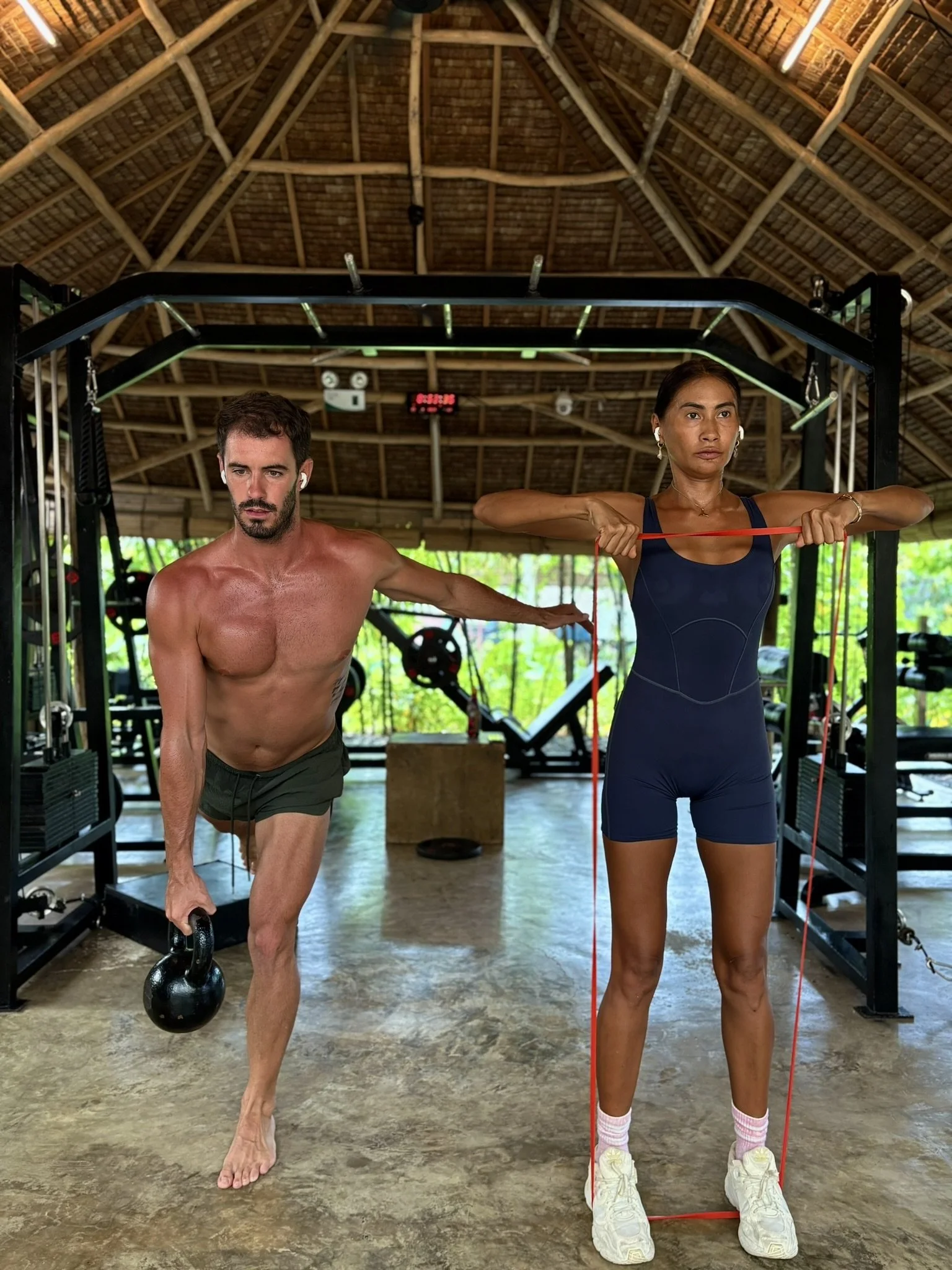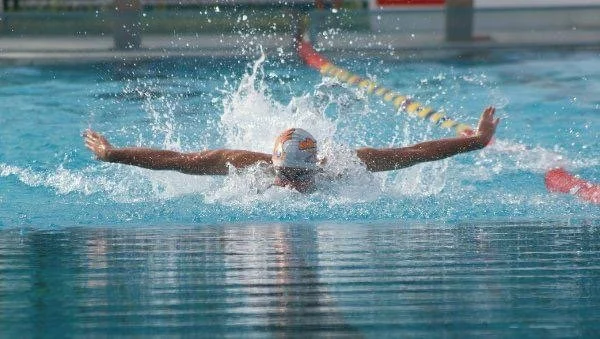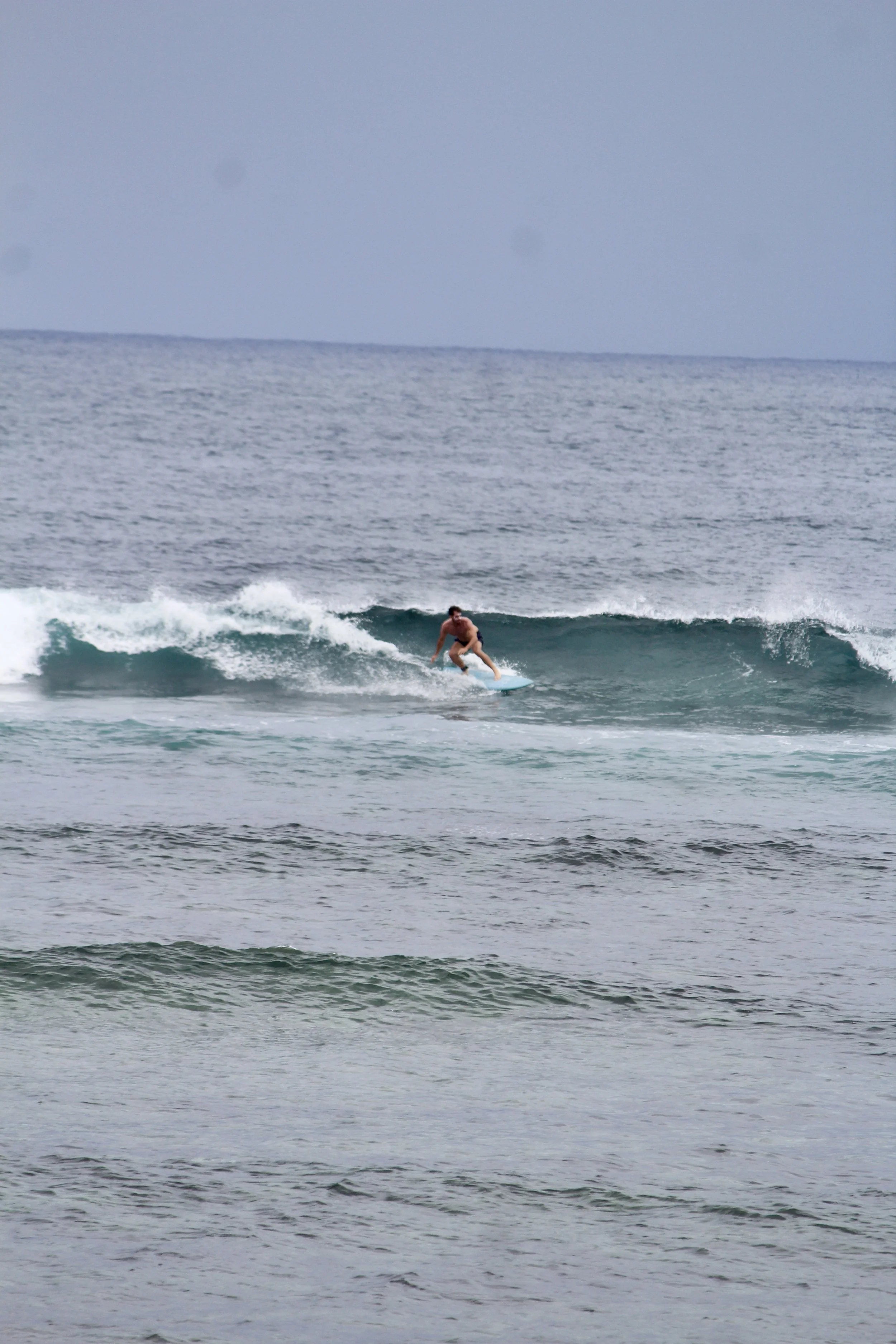Wave Your Stress Goodbye: How Functional Training, Swimming, and Surfing Retreats Transform Your Mental Health
Introduction
In our hyperconnected world, stress has become the unwelcome companion that follows us everywhere—from our morning commute to our midnight scrolling sessions. While traditional wellness approaches focus on meditation and spa treatments, a revolutionary movement is emerging that combines physical challenge with mental restoration: fitness retreats centered on functional training, swimming, and surfing.
These dynamic retreats offer more than just a vacation from routine; they provide a complete mental health reset through movement, nature, and community. Unlike conventional fitness programs that isolate you in a gym, these water-and-movement-based retreats create a holistic environment where your body and mind can heal simultaneously. The combination of functional training's empowering strength-building, swimming's meditative rhythm, and surfing's mindful flow creates a powerful trilogy for mental wellness.
Research consistently shows that physical activity releases endorphins, reduces cortisol levels, and improves cognitive function. But when you combine these activities with the therapeutic properties of water and the restorative power of nature, the mental health benefits multiply exponentially. Let's explore how these specialized retreats are revolutionizing the way we approach stress relief and mental wellness.
The Science Behind Movement and Mental Health
The connection between physical activity and mental well-being runs deeper than the familiar "runner's high." When we engage in functional training, swimming, and surfing, our bodies undergo complex biochemical changes that directly impact our mental state. Exercise triggers the release of endorphins, often called "feel-good" chemicals, which act as natural mood elevators and pain relievers.
Beyond endorphins, these activities stimulate the production of brain-derived neurotrophic factor (BDNF), a protein that promotes the growth of new neural connections. This neuroplasticity enhancement is crucial for resilience, learning, and recovery from stress and trauma. The rhythmic nature of swimming and the balance challenges of surfing particularly activate the parasympathetic nervous system, shifting your body from fight-or-flight mode into a state of rest and restoration.
Water-based activities add another dimension to mental health benefits. The hydrostatic pressure of water provides a gentle, full-body compression that can reduce anxiety and promote feelings of security. The sensory experience of being in water triggers the release of dopamine and serotonin, neurotransmitters essential for mood regulation and happiness.
Functional Training: Building Mental Resilience Through Physical Strength
Functional training forms the backbone of transformative fitness retreats, focusing on movements that mirror real-life activities while building comprehensive strength, stability, and coordination. Unlike traditional weightlifting that isolates muscle groups, functional training integrates multiple systems simultaneously, creating a mind-body connection that extends far beyond the workout session.
The mental health benefits of functional training are profound and multifaceted. Each successful movement pattern completion builds confidence and self-efficacy—the belief in your ability to handle challenges. This psychological boost translates directly to improved stress management in daily life. When you can deadlift, squat, and carry with proper form, you develop a sense of physical competence that radiates into mental resilience.
The problem-solving aspect of functional training also provides cognitive benefits. Learning to coordinate complex movements requires focus, spatial and adaptation—skills that strengthen your ability to navigate life's challenges with greater mental clarity. The progressive nature of functional training creates a feedback loop of achievement, where each milestone reached reinforces your capacity for growth and change.
Group functional training sessions, common in retreat settings, add a social dimension that combats isolation and builds community. The shared experience of overcoming physical challenges creates bonds and support networks that participants often maintain long after the retreat ends.
Swimming: The Meditative Power of Rhythmic Movement
Swimming offers a unique combination of cardiovascular exercise, full-body strength training, and meditative practice that makes it exceptionally effective for mental health improvement. The rhythmic nature of swimming strokes creates a moving meditation, where the repetitive motion and controlled breathing naturally quiet the mind and reduce anxiety.
The sensory deprivation aspect of swimming—the muffled sounds, the weightless sensation, the focus on breath—creates an environment similar to meditation or mindfulness practices. This sensory reduction allows the mind to disconnect from external stressors and enter a state of flow, where worries dissolve and mental clarity emerges.
Swimming also provides exceptional stress relief through its non-impact nature. The buoyancy of water supports the body, reducing joint stress while providing resistance for muscle strengthening. This creates an ideal environment for people carrying both physical and emotional tension, allowing them to exercise vigorously without additional strain.
The bilateral nature of swimming strokes—the alternating left-right movement patterns—has been shown to promote communication between brain hemispheres, potentially improving emotional regulation and cognitive function. Many retreat participants report that their most profound insights and emotional breakthroughs occur during long swimming sessions.
Surfing: Mindfulness in Motion and Nature Connection
Surfing represents the pinnacle of mindful movement, demanding complete presence and awareness while connecting practitioners directly with the power and rhythm of nature. The act of surfing requires a unique combination of patience, timing, balance, and surrender that cultivates mental skills directly applicable to stress management and emotional regulation.
The anticipation and reading of waves teaches practitioners to observe patterns, wait for the right moment, and respond rather than react—skills that translate beautifully to handling life's challenges. The ocean's unpredictability means surfers must stay present and adaptable, developing a tolerance for uncertainty that reduces anxiety in other areas of life.
The physical demands of surfing—paddling, balance, and core stability—provide an excellent workout while the mental focus required creates a natural state of mindfulness. The combination of physical exertion and mental presence triggers the release of endorphins while simultaneously quieting the mental chatter that often contributes to stress and anxiety.
Perhaps most importantly, surfing connects practitioners with the natural world in a way that few other activities can match. This nature connection, sometimes called "blue space" therapy, has been shown to reduce cortisol levels, lower blood pressure, and improve overall psychological well-being. The vastness of the ocean provides perspective on personal problems, while the rhythmic sound of waves creates a natural stress-relief environment.
The Retreat Environment: Amplifying Benefits Through Community and Immersion
The retreat setting amplifies all the individual benefits of functional training, swimming, and surfing by creating an immersive environment dedicated to transformation. Removing participants from their usual environment—with its triggers, distractions, and responsibilities—allows for deeper focus on personal well-being and mental health improvement.
The community aspect of retreats cannot be overstated in its importance for mental health. Participants often arrive feeling isolated in their struggles with stress, anxiety, or life challenges. The shared experience of physical challenge, learning new skills, and supporting each other creates powerful bonds and a sense of belonging that continues long after the retreat ends.
Professional guidance from qualified instructors ensures that activities are conducted safely while maximizing mental health benefits. Expert coaches can adapt activities to individual needs, provide encouragement during challenging moments, and offer insights that connect physical experiences to mental growth.
The structured yet flexible nature of retreat schedules creates a healthy rhythm that participants can model in their daily lives. The balance of challenge and rest, activity and reflection, individual practice and group experiences provides a template for sustainable mental wellness practices.
Conclusion
Fitness retreats combining functional training, swimming, and surfing represent a paradigm shift in mental health and stress management approaches. Rather than treating symptoms, these programs address the root causes of stress and anxiety by building physical resilience, mental clarity, and emotional regulation skills through movement and nature connection.
The science is clear: regular physical activity, particularly when combined with mindfulness and nature exposure, provides powerful protection against stress, anxiety, and depression. The unique combination of land and water activities creates a comprehensive approach that addresses multiple aspects of mental wellness simultaneously.
Most importantly, these retreats don't just provide temporary relief—they equip participants with skills, confidence, and community connections that support long-term mental health improvement. The physical competence gained through functional training, the meditative skills developed through swimming, and the mindful presence cultivated through surfing create a toolkit for managing life's challenges with greater resilience and joy.
Ready to Transform Your Mental Health Through Movement?
Don't let stress continue to control your life. Take the first step toward mental wellness and stress relief by exploring functional training, swimming, and surfing retreat options. Your mind and body are designed to move, connect, and thrive—give them the opportunity they deserve. Start researching retreat programs today and invest in your mental health through the transformative power of movement and nature.




